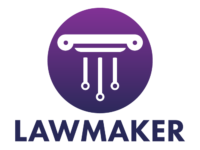synAthina is the common space which brings together, supports and facilitates citizens’ groups engaged in improving the quality of life in the city.
synAthina's aim is to support the activities of the citizens the City and create a new perception about the relationship between civic society and local governance and cultivates their dynamic, bidirectional bond.
synAthina platform has brought a new era of social innovation in Athens, bringing new perspectives and approaches to bear on…
Innovation Tag: Cross-Sector Partnerships
Adur and Worthing Councils implemented a low code development platform to help them take control of their digital transformation. A small digital team is building end-to-end user-centred digital services that are replacing expensive and inflexible legacy systems. Low cost, fast and flexible, this pioneering digital strategy has delivered multiple customer and efficiency benefits, won national awards and central government recognition.
The integration of health and social care was seen by the Scottish government to require support to ensure that benefits of both national and local data and knowledge were able to be shared across two very different cultures and service providers to jointly develop more appropriate services for local populations.
LIST using their expertise in analytical work was seen as a way to develop a sound evidence base to allow decision makers to develop effective services.
The Exchange was developed to raise awareness in tourism industry on the importance of serving local food and drinks even in urban destinations (Ljubljana). The project objective is to positively affect the living standard of local farmers whereby quality and quantity of local food in hotels and restaurants will increase. With this project, Ljubljana has successfully and uniquely linked tourism sector and local agriculture to bolster sustainable economic growth and create new opportunities.
ID2020 is a public-private partnership dedicated to improving lives through private and user-controlled digital identity. Today, over 1 billion people live without any form of legal ID, which can leave them economically marginalized and robbed of the opportunity for active citizenship. ID2020 is setting technical standards and launching pilot projects aimed at finding scalable digital identity solutions for world's most vulnerable populations, particularly refugees and stateless persons.
The Northern Ireland (NI) Public Sector Innovation Lab has organised a hackathon, “Hack the Pain,” to address these needs of an underserved group: people with persistent pain. These individuals need for better information services for self-management, and the projects that emerged from the hackathon include a virtual reality app for mindfulness, a pain tracking app and a website of information on pain management techniques.
LawMaker is a lobby for the lobbyless – a free advocacy tool for those of us who don’t have a professional working for them to influence our governments. LawMaker allows Americans to (1) crowdsource ideas for new laws, (2) build voter coalitions, and (3) engage politicians to advocate for change. Our mission is to democratize democracies by empowering the creation of new laws that originate from real people at the grassroots, instead of from lobbyists and wealthy special interests.
All cars on Australian roads must have compulsory insurance (CTP). In the ACT, this insurance was expensive, coverage limited, and most claims needed to be settled in the courts. democracyCo designed and delivered a Citizens’ Jury and extensive stakeholder engagement process to develop a improve the scheme. Over 7 months 50 Canberrans worked with a group of stakeholders to design the improved scheme, which the Government committed to implement.
The frameworks for creating and managing the rule of government, as reflected in policies, legislation and regulation, are still based on a paper paradigm. In a digital world this creates poor service experiences and often the intent of a policy is not achieved. Instead if we co-design authoritative machine-consumable rules we can provide better services for citizens, better delivery of policy intent, and enable communities, NGOs and private sector to be part of a government service ecosystem.
Les Halles Civiques is a third-place network that gathers organisations working on citizen empowerment, public innovation, and democratic progress. Its members are researchers, designers, social innovators, entrepreneurs, etc. It aims to contribute to a richer and more inventive democratic life at the local, national and international level, and strengthen democratic innovation. It is also a physical space where citizens, professionals and representatives can work, meet and discuss.




